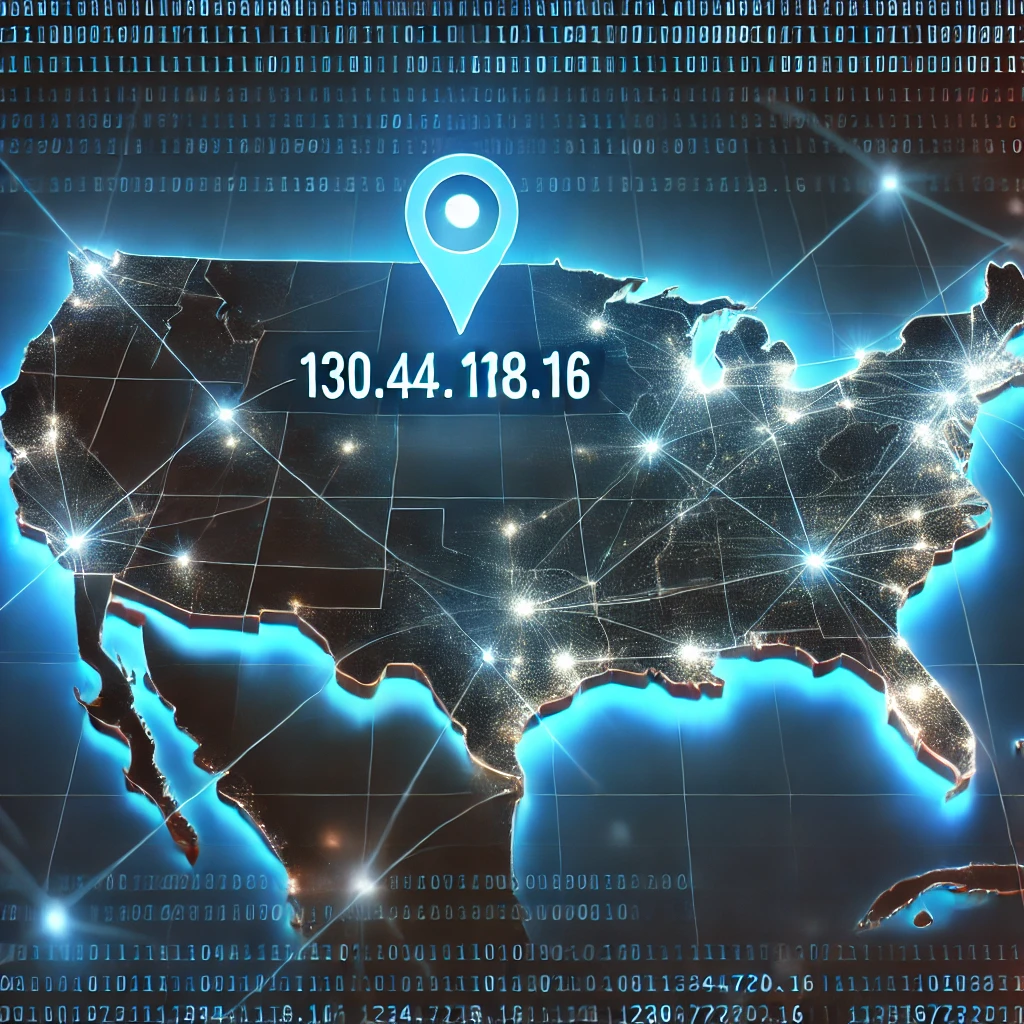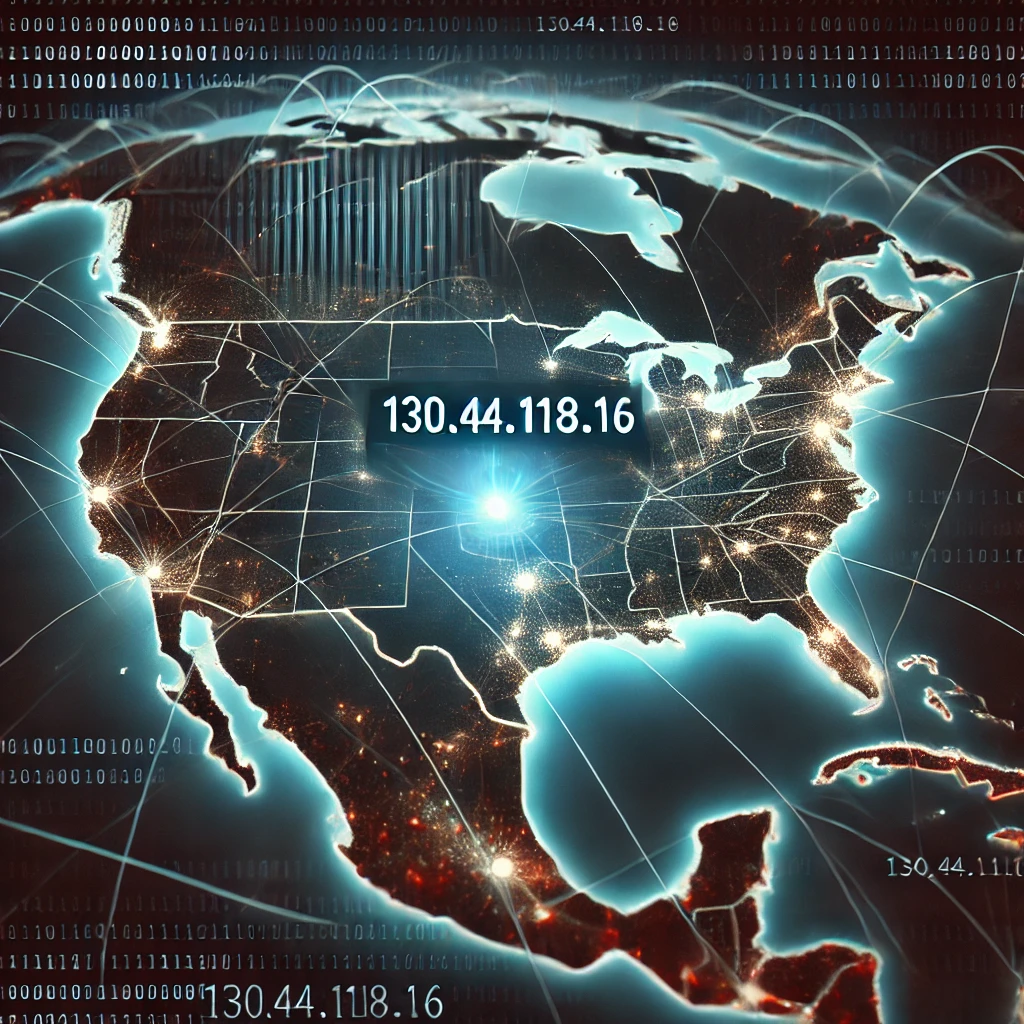Ever stumbled across the keyword “130.44.118.16 IP address” and wondered what it’s all about?
Maybe you’re trying to figure out if it’s safe, track its location, or just understand why it matters.
Don’t worry—you’re not alone.
Let’s unpack everything you need to know about the 130.44.118.16 IP address in plain, simple language.
Is 130.44.118.16 ip address a Static or Dynamic IP?
This is often the first question people ask.
IP addresses can either be static (they don’t change) or dynamic (they change often).
Static IPs are commonly used by servers, websites, or services that need a permanent address.
Dynamic IPs, on the other hand, are usually assigned to everyday users like you when you connect to the internet.
To figure out what 130.44.118.16 ip address is, you’d need to trace it back to its ISP or service provider.

Who Owns 130.44.118.16 ip address?
Ownership is a big deal when it comes to IP addresses.
130.44.118.16 ip address is part of a block of IP addresses assigned by Regional Internet Registries (RIRs).
You can use tools like WHOIS to uncover details like:
- The service provider
- Location information
- Whether it’s associated with suspicious activity
Can You Track the Location of 130.44.118.16 ip address?
Short answer: Yes, sort of.
IP addresses like 130.44.118.16 ip address can reveal approximate geographic locations.
But they’re not GPS coordinates.
You might pinpoint the country, region, or city, but don’t expect street-level accuracy.
For example, tools like IPLocation.net or GeoIP Lookup can help you get a rough idea.
Is 130.44.118.16 ip address Safe?
If you’re worried about security, you’re asking the right questions.
An IP address like 130.44.118.16 can be flagged for many reasons:
- Spam or hacking attempts
- Hosting suspicious websites
- DDoS attacks
Use security check tools like AbuseIPDB to see if it’s blacklisted.
If you find 130.44.118.16 in your server logs or network traffic, it’s worth investigating further.
Common Uses for an IP Address Like 130.44.118.16 ip address
Not every IP address is worth worrying about.
Here’s where addresses like 130.44.118.16 ip address might show up:
- Server Hosting
If this is a static IP, it’s probably linked to a server hosting websites or services. - Proxy or VPN Services
It could belong to a VPN, masking user locations for privacy. - Internal Company Networks
Some businesses use dedicated IPs for internal tools and data. - Hackers
Yep, sometimes malicious actors use public IPs like 130.44.118.16 to hide their real locations.
How Can You Check an IP Address Like 130.44.118.16 ip address?
Want to dig deeper into 130.44.118.16?
Here’s what to do:
- Run a WHOIS Search
Websites like ARIN WHOIS can give you ownership details. - Ping the IP
Use the command line to test if 130.44.118.16 is live. - Check for Blacklists
Look it up on AbuseIPDB or Spamhaus.
What If You See 130.44.118.16 in Your Logs?
Found 130.44.118.16 in your logs?
Here’s how to handle it:
- Investigate Its Activity
Look at what the IP was doing. Was it accessing sensitive data? - Block It if Necessary
If it seems malicious, add it to your firewall’s blacklist. - Run a Malware Scan
If this IP has been flagged, it’s worth checking your system for potential infections.

FAQs About 130.44.118.16
Can you hide from 130.44.118.16?
If this IP is causing you concern, use a VPN to mask your online activity.
Why does 130.44.118.16 keep showing up in my logs?
It might belong to a bot or service regularly scanning networks.
Can I block 130.44.118.16?
Absolutely. Use your router’s settings or firewall to block specific IPs.
Final Word on 130.44.118.16 IP Address
The 130.44.118.16 IP address might seem like a random string of numbers, but it’s part of the internet’s backbone.
Whether you’re curious about its location, owner, or security status, tools like WHOIS and AbuseIPDB can help you dig deeper.
Always keep an eye on your network activity.
If you’re ever unsure, blocking a suspicious IP is usually the safest move.
Understanding the 130.44.118.16 IP address is your first step to keeping your digital life secure.
